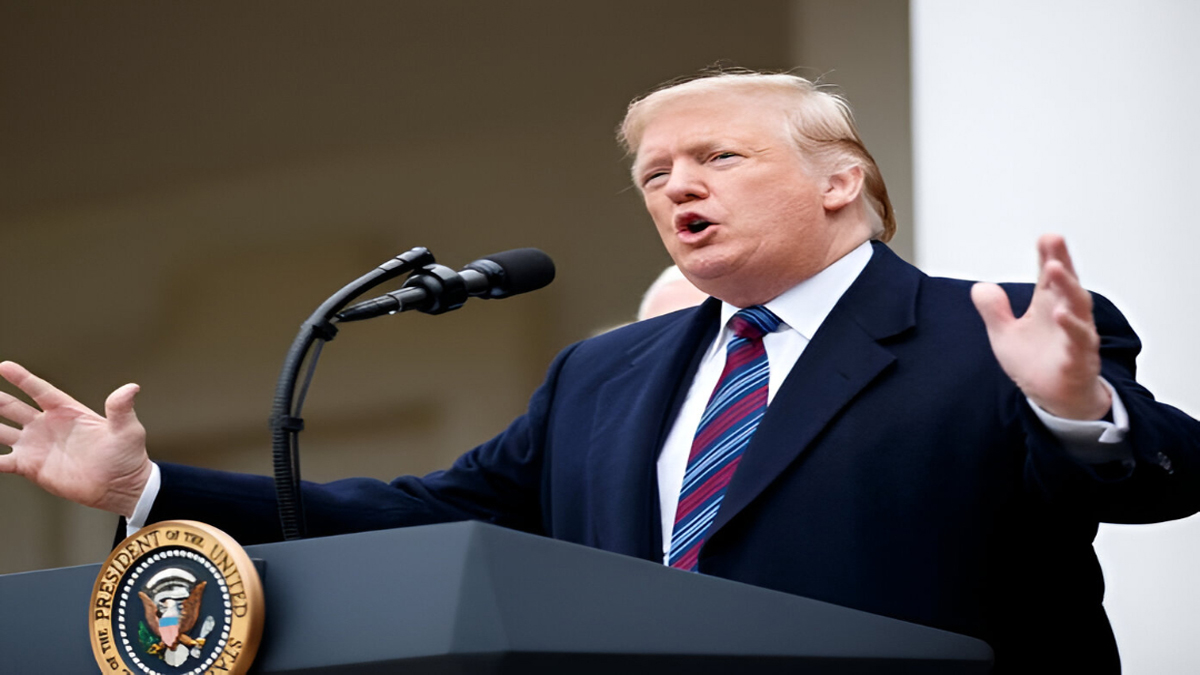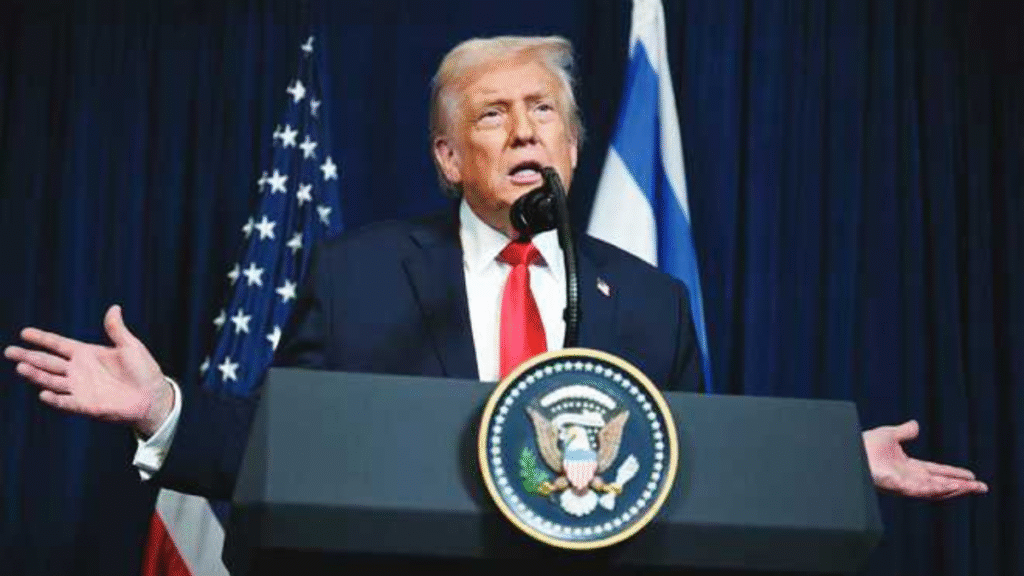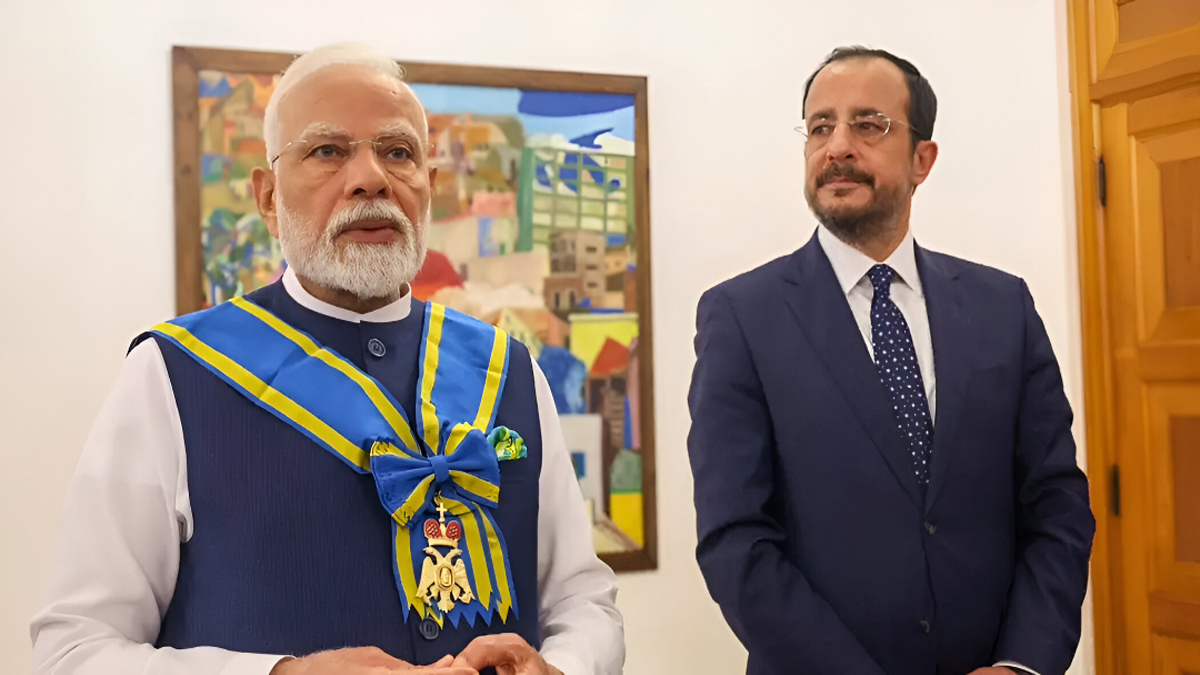Now Reading: Trump Abruptly Ends G7 Visit with Stark Warning: “Everyone Should Evacuate Tehran” Amid Escalating Middle East Tensions
-
01
Trump Abruptly Ends G7 Visit with Stark Warning: “Everyone Should Evacuate Tehran” Amid Escalating Middle East Tensions
Trump Abruptly Ends G7 Visit with Stark Warning: “Everyone Should Evacuate Tehran” Amid Escalating Middle East Tensions

In a dramatic and unexpected turn of events, U.S. President Donald Trump cut short his attendance at the Group of Seven (G7) summit in Canada, issuing an ominous warning to the residents of Tehran to “immediately evacuate.” The announcement, made via his Truth Social platform, underscores the rapidly escalating conflict between Israel and Iran, which has entered its fifth consecutive day of hostilities.
President Trump’s abrupt departure from the G7 summit, held in the scenic Canadian Rockies, was confirmed by the White House, citing “what’s going on in the Middle East.” His decision to leave a day earlier than planned sent ripples through the international gathering, where leaders had convened to address pressing global issues, including the ongoing conflicts in Ukraine and Gaza, as well as trade disputes.
The stark evacuation order for Tehran, a city of nearly 10 million people, marks a significant intensification of rhetoric from the U.S. President. It comes amidst a flurry of missile and drone exchanges between Israel and Iran, with reports of explosions and activated air defenses in Tehran and other Iranian cities, as well as air raid sirens wailing in Tel Aviv.
Trump reiterated his long-held stance on Iran’s nuclear program, stating, “Iran should have signed the ‘deal’ I told them to sign. What a shame, and waste of human life. Simply stated, IRAN CAN NOT HAVE A NUCLEAR WEAPON. I said it over and over again!” He has consistently maintained that the Israeli assault could end swiftly if Iran were to agree to strict curbs on its nuclear ambitions, asserting that Iran was given a 60-day window to reach an agreement before Israel launched its aerial strikes.
While the specific reasons for the direct evacuation order remain somewhat unclear, it is widely interpreted as a grave signal of potential further escalation in the region. The U.S. has so far maintained that it is not directly involved in the initial Israeli strikes, though it has deployed “additional capabilities” to the Middle East, according to Defense Secretary Pete Hegseth. Hegseth also clarified that U.S. forces in the region remain in a defensive posture and that President Trump is still open to a nuclear deal with Iran.
The escalating crisis has overshadowed the G7 discussions, with European leaders, including French President Emmanuel Macron and German Chancellor Friedrich Merz, reportedly holding urgent talks to discuss the implications. Macron, while acknowledging Trump’s early departure, expressed hope that it could facilitate efforts for a ceasefire between Israel and Iran. However, a U.S. official indicated that Trump would not sign a joint G7 statement calling for de-escalation, highlighting a potential divergence in diplomatic approaches among G7 nations.
The conflict has already resulted in significant casualties, with Iranian officials reporting 224 deaths, mostly civilians, over five days, and Israel confirming 24 civilian deaths. Thousands of Israelis have also been evacuated due to damage from Iranian strikes. The Chinese embassy in Israel has urged its citizens to leave the country as soon as possible, reflecting growing international concern over the potential for a wider regional conflagration.
As President Trump returns to Washington, reportedly to convene his National Security Council, the world watches with bated breath, grappling with the unprecedented developments in the Middle East and the implications of this new, stark warning.










